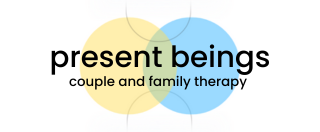Queer Authenticity & Attachment
Authenticity: To know what we feel, to be in touch with our bodies, and to express who we are in our activities and relationships
Attachment: The life-sustaining relationship bonds, formed in infancy that create our template for adult relationships
For children growing up in volatile homes, making the “choice” between attachment (to our caregivers) and authenticity (within ourselves) is rarely a choice at all – our survival demands we choose attachment.
Now adults, the process of trying to integrate authenticity and attachment can be confusing, painful, and lonely. This is often amplified for LGBTQ populations.
Queer Authenticity & Attachment is a support-style group that meets weekly to address the seeming paradox of these values. Members will relate about areas of life where they are trying to concurrently practice authenticity, while creating or maintaining healthy attachments in their lives.
During sessions, clients can expect to give and receive support, build a community of strength and solidarity, and mutually practice and inspire repatterning. This group is designed to help members navigate different phases of life development and bridge different phases of healing.
To learn more about the tension between Authenticity and Attachment,
watch this clip from noted addictions researcher,
Dr. Gabor Maté.
“If I express what I feel and insist on my own truth, ... I risk losing the relationships on which my life depends.”
Topics explored in this group include:
Ableism and aging
Accessing motivation for self-care
ADHD
Alone time
Being “good”
Being disliked
Being too much; not being enough
Belonging
Becoming our parents
Boundary needs for child Self and adult Self
Boundaries with attachment figures
Boundaries of Self & Other
Childhood neglect
Codependency
Community relationships with people who’ve hurt you
Concern for parents as adult children
Constellations
Definitions of success or failure
Directness in social settings
Distress tolerance
Egocentrism; traumatic Self orientation
Emotional immaturity
Expressive arts
Family of origin experiences
Gendered language and socializations
Group dynamics related to conflict
Illness and isolation
Independence and interdepence
Inner loving parent
Interpersonal boundaries
Issues related to housing
Material impacts of prejudice across difference
Materialism
Martyrdom
Needing help (individualism)
Not disassociating during grief
The intergenerational wealth of having emotionally mature parents
Pride and shame
Relationship dynamics
Relationship expectations
Right sizedness; humility
Self and community care
Staying present
“Therapy speak,” soothing communication
Transphobia
Vulnerability/boundary setting
“Vulnerability hangovers”
Window of Tolerance
To express interest in joining the next Queer Authenticity & Attachment cycle,

